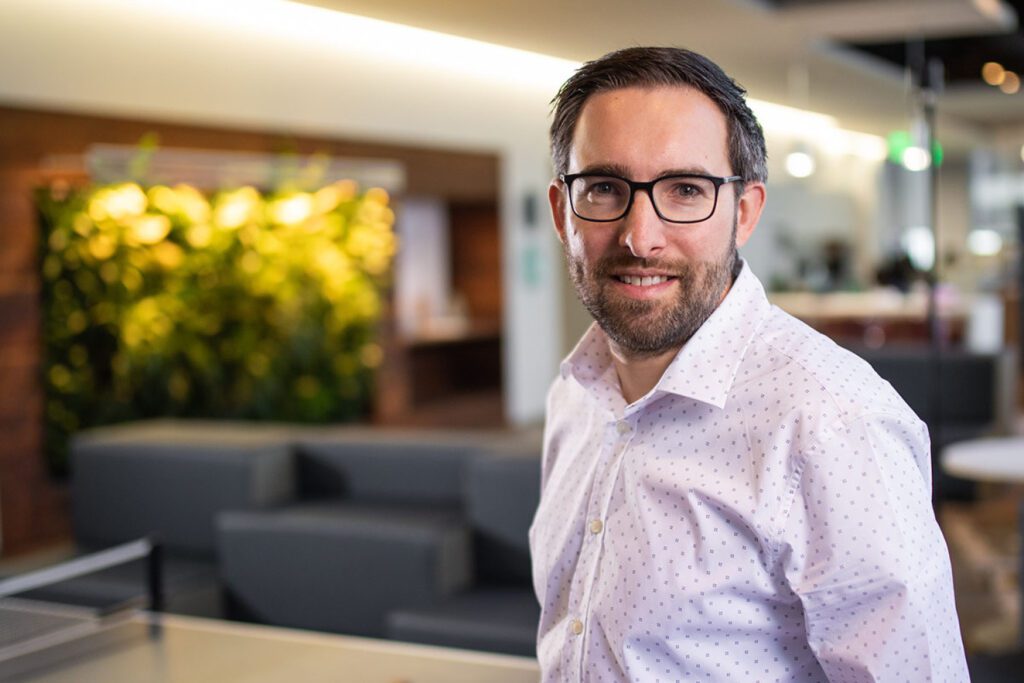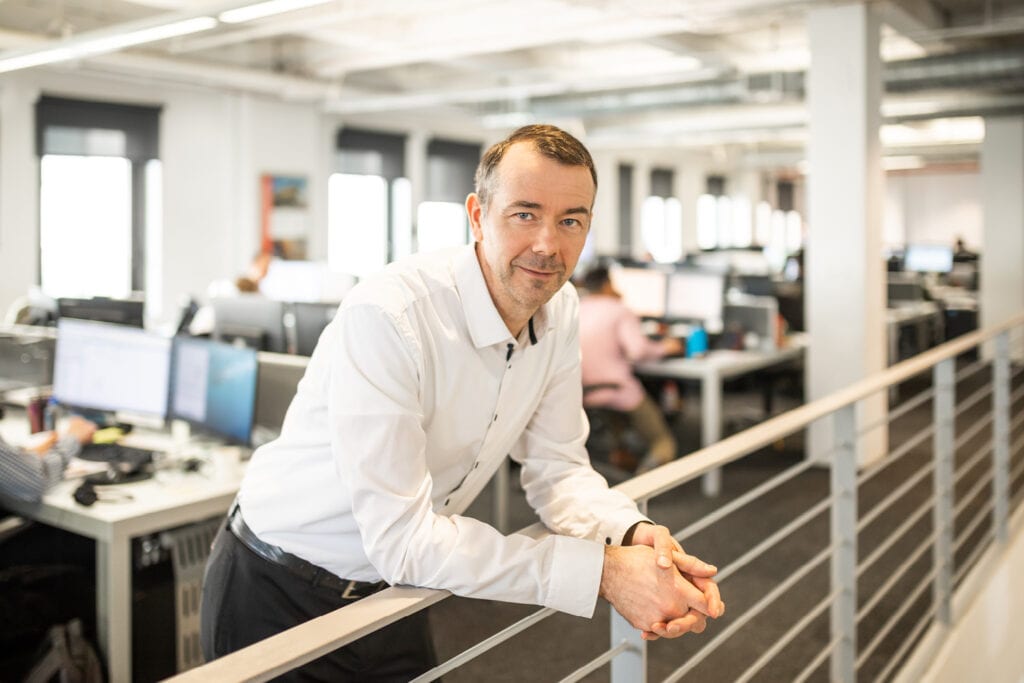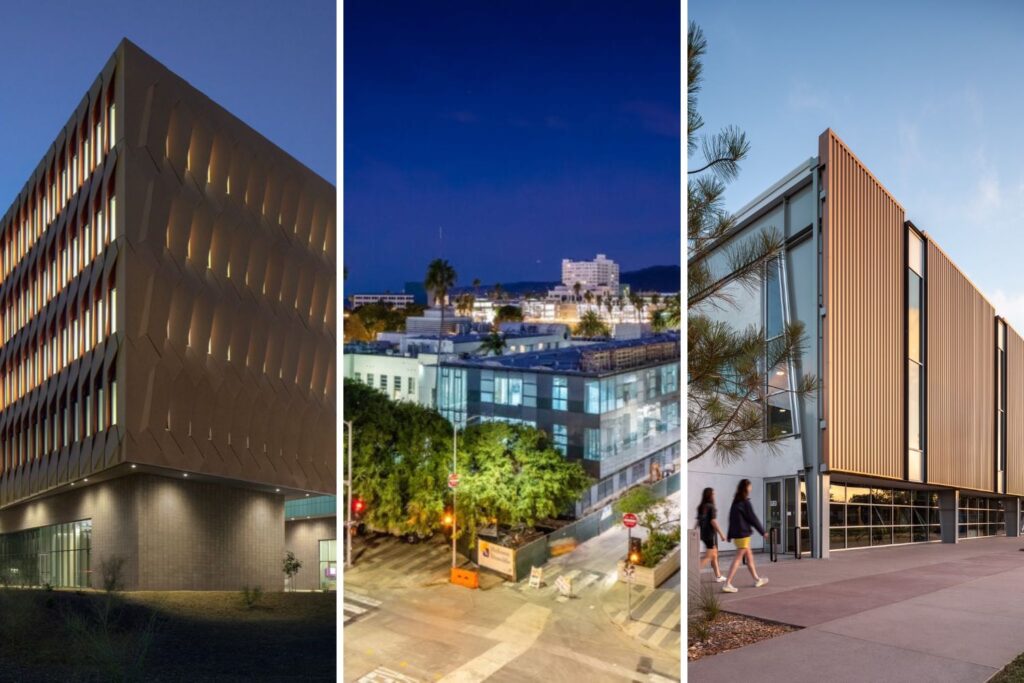Decarbonization conference for the built environment
Sharing lessons learned and key successes to aid in a widescale clean energy transition.
As part of a drive to share our decarbonization lessons learned and success, Buro Happold will be presenting at the 2023 Decarbonization Conference for the Built Environment hosted by ASHRAE on October 25-27 in Washington, D.C.
We know that achieving a wide scale energy transition is dependent on working collaboratively across disciplines and scales. For the built environment, a sector that generates significant proportion of the global carbon emissions each year, Buro Happold finds it critical that we and other experts at the forefront of this changing energy landscape understand our responsibility. That means it’s not just in implementing designs that reduce emissions and our reliance on fossil fuels. We also must share our technical subject matter expertise and insight on the evolution of strategies, human wellbeing, regulations, financial incentives, and more to highlight how our peers and clients can map out and navigate complex decarbonization projects.

We can achieve a clean energy transition more efficiently and quickly through partnerships and collaboration.
Buro Happold will present on various topics related and instrumental to a decarbonized built environment that cover both technical innovations and practical concerns around regulations and financial incentives. These topics include how to streamline embodied carbon data tracking across the industry, navigate policy and planning, reduce operational carbon even in the most energy intensive buildings, and accomplish multi-layered and complex green renovations. See below for the full topic descriptions from our speakers.
Embodied Carbon Harmonization and Optimization (ECHO) Project
Wednesday, October 25 | 1:40PM
Reducing the carbon footprint of the built environment is possible, but it will require collaboration to foment the needed market transformation toward regenerative carbon strategies in the coming years and decades. During this panel you will hear from individuals that are part of Architecture 2030, MEP 2040, Carbon Leadership Forum and more. Together, they are working toward streamlined carbon data collection and reporting, key terminologies, consolidated industry capacity building, and speaking together with a harmonized voice on the topic of whole life carbon.
Chair: Andrew Himes, Carbon Leadership Forum
Panelists: Jessica Bristow, ILFI, Melissa Morancy, AIA, Katie Poss, Building Transparency, Lauren Alger, Infrastructure, Pamela Conrad, Climate Positive, Kayleigh Houde, Buro Happold, and, Julie Janiski, Buro Happold
Reducing Emissions through Policy, Planning and Action
Wednesday, October 25 | 3:30PM
In an effort to address climate change and move towards decarbonization of buildings, policymakers across the country are enacting building performance laws that require buildings and agencies to meet certain performance standards. This session will review trends across the country that are driving building-focused legislation and codes and ways in which institutions are at the forefront in raising awareness and providing support to those impacted by these standards. This session will also provide a detailed review of how a government agency like the DC Department of Government Services developed an Energy Management Plan to reduce emissions.
Breakout Sessions:
1. Building Performance Standards: Driver of Decarbonization, Theresa Backhus, LEED AP, Institute for Market Transformation
2. The Role of Energy Management Planning in Reducing Carbon Emissions Jen Croft, Department of General Services
3. Implementation of Energy Management Planning Jui-Chen, Roger Chang, P.E., BEMP, Fellow Member, Buro Happold
Unique Methods to Minimize Operational Carbon
Thursday, October 26 | 10:30AM
There are many strategies to reducing your carbon impact through the operation of the facility and systems, and this session covers some unique concepts that can be applied to your facility and projects. Understanding how potential incentives, such as the Inflation Reduction Act (IRA) can be applied to change some financial hurdles, it is crucial to understand and evaluate different energy contracts and how those can be utilized to increase cost savings and return for facility improvement measures. This session also covers the impact of cold climate on a campus and its path to carbon neutrality.
Chair: Ghina Annan, Stantec, Calgary
Breakout Sessions:
1. The Coming Age of a Smart Grid and Smart Buildings, Thomas M Lawrence, PhD, LEED-AP P.E. Ph.D., Fellow S-B-a Member, University of Georgia
2. Decarbonization Considerations for Different Building and Campus Typologies. How Does Resiliency Change across Federal, Healthcare, Higher Education and Corporate Settings, Jason Masters, Buro Happold
3. The Path to Decarbonizing Campuses in Cold Climates, Ghina Annan, Stantec
4. Decarb Retrofits: The Role of O&M Programs, Charles Jelen, Associate, Trane Technologies
Deep Green, Market Rate, Net Zero: How ASHRAE’s New Global Headquarters Renovation Achieved All Three
Friday, October 27 | 9:10AM
As the global stock of buildings constructed prior to 1980 approaches a half century of use, design professionals will increasingly be asked to transform these structures via high performance, deep green renovations. To help minimize embodied and operational carbon impact, these renovations will need to achieve higher levels of sustained, demonstrated performance. The recently completed renovation of a 1970’s suburban office building into a net-zero headquarters for ASHRAE provides a timely case study into how the right strategies can lead to better outcomes. The operational challenges of achieving net Zero outcomes are explored, with examples of some strategies.
Chair: Stanton Stafford, PE, LEED Fellow, Member, Buro Happold
Breakout Sessions:
1. ASHRAE Headquarters Building: The Journey to Net Zero, Darryl Boyce, Carleton University
2. Deep Green, Market Rate, Net Zero: How ASHRAE’s New Global Headquarters Renovation Achieved All Three, Gregory Walker, AIA, NCARB, LEED AP, Houser Walker Architecture
If you are planning to attend the ASHRAE conference, we invite you to come talk to us about your decarbonization concerns, hurdles, wins, and anything in between. Beyond the ASHRAE conference, we have decarbonization experts throughout the U.S. and globally who are eager to strategize and collaborate on developing frameworks and implementation plans towards a decarbonized environment, no matter what stage. From understanding where your energy demands are greatest to mapping out how to achieve carbon targets, we can help you on your decarbonization journey.
As we step into an era of unprecedented environmental challenges, decarbonizing our built environment emerges as a powerful force for change. We hope to continue to build a robust network of stakeholders to share perspectives, ideas, and concerns. Making this a collaborative effort is imperative in realizing a new energy landscape.









